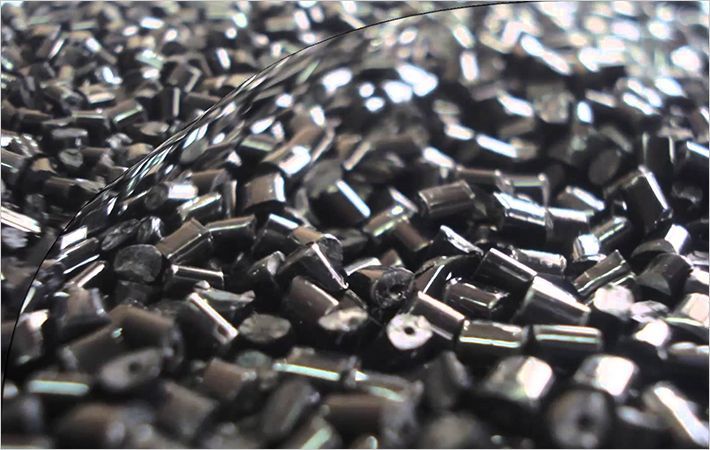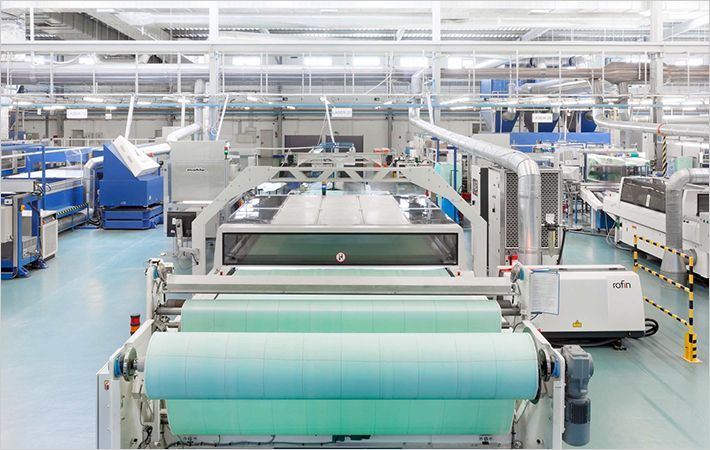The production of a T-shirt, for example, usually requires about 4,000 litres of water from raw material to finished product. With the new fibre, only half the amount of this precious resource is used. This manufacturing method can save 5,000 litres of water for each kilogramme of yarn. Andreas Merkel sees huge potential for the future: ‘The lack of water is becoming dramatically obvious in more and more regions of the world. With this approach, we have made our contribution to the protection of this valuable and life-sustaining natural resource.’
Sustainable added value
In 2002, Gebr. Otto was one of the first ever companies to be certified according to the requirements of OEKO-TEX Standard 100plus. The OEKO-TEX Standard 100plus product label enables textile and clothing manufacturers to use one single test mark for providing their customers with documentation of the human ecology requirements according to OEKO-TEX Standard 100 and their environmentally friendly production conditions according to OEKO-TEX Standard 1000.
Andreas Merkel is convinced that the required measures have been worthwhile for the company: ‘We are convinced that products from environmentally friendly production which have undergone testing for harmful substances offer clear added value for consumers. OEKO-TEX Standard 100plus is one of the few labels that can communicate this added value for finished textiles at point of sale.’
Oeko-Tex

